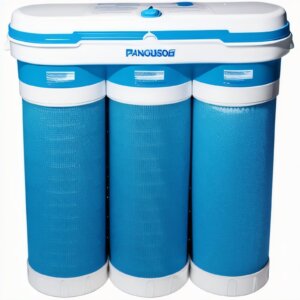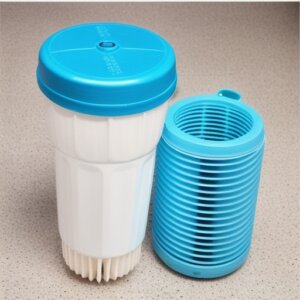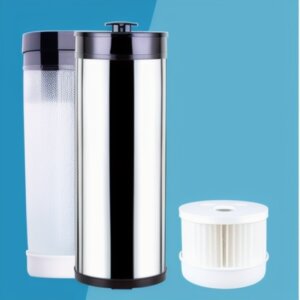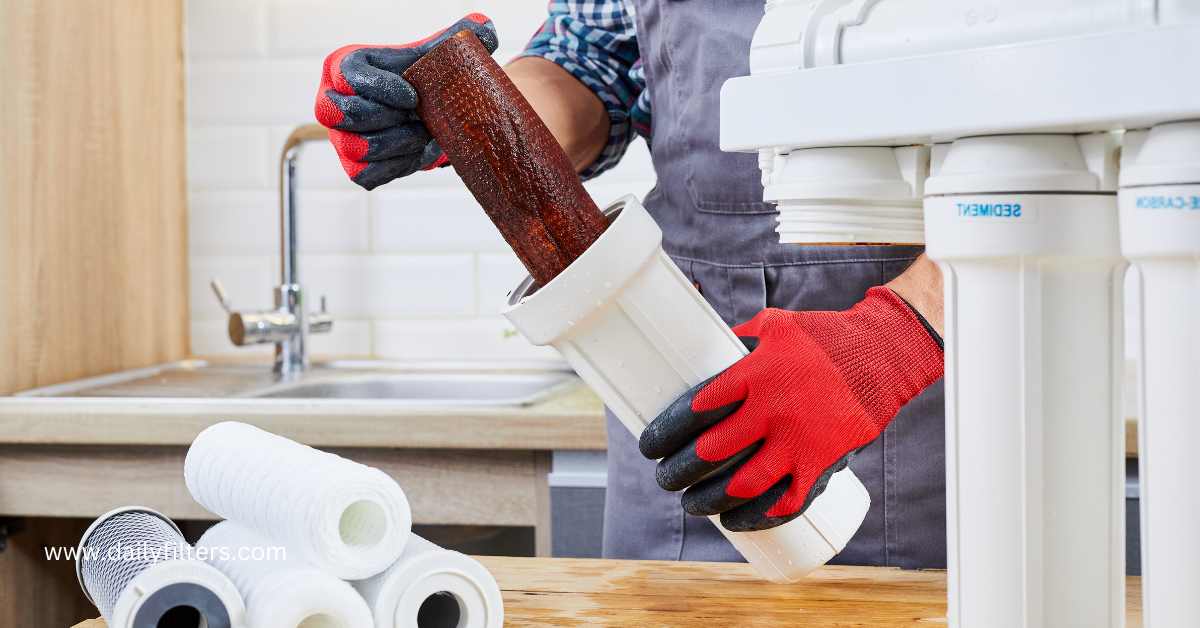Water filters are essential for ensuring the quality and safety of your drinking water. They can remove harmful contaminants such as lead, chlorine, bacteria, and cysts and improve the taste and odor of your water. However, the market is flooded with counterfeit water filters that can pose a significant risk to your health. Some water filters sold online or in stores may be counterfeit or deceptively labeled, posing a threat to your health and appliances.
Counterfeit water filters claim to be genuine replacement filters for your refrigerator, pitcher, or faucet. Still, they are made by unauthorized manufacturers who follow different standards and regulations than the original brands. These filters may look similar to the real ones. Still, they often contain inferior or harmful materials that can fail to filter your water correctly or add contaminants.
In this article, we’ll discuss how to spot a counterfeit water filter, the potential dangers of using a counterfeit water filter, and how to avoid buying one.
Why Counterfeit Water Filters are Dangerous
Deceptively labeled water filters make misleading or false claims to make you think they are certified or tested by reputable organizations, such as NSF International or the Water Quality Association (WQA). These filters may have yet to undergo rigorous testing or verification and may not meet the performance and safety requirements for your specific appliance or water source.

Counterfeit water filters are made from inferior materials that can harm your health. The most commonly used materials are activated carbon, zeolite, and sand. These materials contain toxins that can seep into your drinking water, causing severe health issues like lead poisoning, gastrointestinal problems, and even cancer.
Signs of a Counterfeit Water Filter
Counterfeit water filters are designed to look like genuine water filters, but there are some key differences that you should look out for. The packaging and labeling of a counterfeit water filter will often have misspelled words, poor-quality printing, or a lack of contact information. The design of the filter may also look slightly different, with variations in color or shape. Always compare the packaging and design of a filter with a genuine filter to spot a counterfeit.
How can you tell if a water filter is counterfeit or deceptively labeled?
Here are 4 important factors from industry experts and consumer advocates:
- Weight: Quality water filters have dense filtering materials that add weight to the cartridge. Counterfeit and deceptively marked filters often weigh less than genuine ones because they need more carbon and other filtration products to filter water properly. Some filters contain none of the products necessary to purify water and only shreds of newspaper inside.

- Certification Symbol: Many counterfeit and deceptively marked products need an authentic certification symbol on the packaging. Those that do may feature a little certification symbol designed to mislead consumers into believing the product has been tested without attracting attention to the point that it’s fraudulent. Look for the packaging’s NSF or WQA Gold Seal symbols and verify them on their websites.
- Glossy Packaging: By using a glossy finish on the box, many counterfeits are designed to look more expensive—and therefore more trustworthy. Genuine water filters usually have matte or plain packaging focusing on product information and features.

- Cost: Phony filters are generally sold online for a fraction of the cost of brand-name filters, which are tested and certified to meet strict industry and government standards. If the cost of the filter seems too good to be true, it might be! Be wary of discounted prices and ensure you buy from a reputable seller.
Understanding the Genuine Water Filter Market
Understanding the open water filter market is essential before spotting a counterfeit. Genuine water filters are manufactured by reputable companies that adhere to strict quality standards. These filters are designed to remove harmful impurities and are thoroughly tested for effectiveness and safety. Always buy genuine water filters from authorized dealers and sellers to ensure you get a quality product.
Always buy from authorized dealers or manufacturers to protect yourself and your family from fake water filters. Check the model number and compatibility of the filter with your appliance before purchasing. Avoid buying from third-party sellers on online platforms that may not have quality control or customer service. And most importantly, replace your water filter regularly according to the manufacturer’s instructions.

Water filters are an essential investment for your health and well-being. Don’t let counterfeiters fool you into buying substandard or dangerous products. By following these tips, you can spot a counterfeit water filter and ensure you get the best performance and value from your genuine water filter.
How to Test a Water Filter for Authenticity
There are different methods for verifying the validity of a water filter, including visual examination, weight testing, and water flow testing.
- The visual assessment compares the filter’s packaging and design to a genuine filter.
- The weight test involves weighing the filter and comparing it to the weight of a basic filter.
- The water flow test entails comparing the water flow rate to the requirements of a genuine filter.
Where to Buy Genuine Water Filters
Buying genuine water filters from authorized dealers and sellers is essential to ensuring quality products. You can purchase natural water filters from your local hardware store, home improvement store, or online retailer like Amazon. Always check that the seller is authorized to sell genuine water filters before purchasing.
How to Avoid Buying a Counterfeit Water Filter
Always buy from authorized dealers and sellers to avoid buying a counterfeit water filter. Research and check that the seller is authorized to sell genuine water filters.
Avoid buying from suspiciously low-priced sources or sellers with poor customer reviews.
Remember that quality water filters are an investment in your health, and it’s worth paying a little extra to ensure you’re getting a genuine product.
Conclusion
This article covered how to spot a counterfeit water filters and how they can significantly threaten your health and appliances. These filters often look like the real ones but contain inferior or harmful materials that can fail to filter your water correctly or add contaminants.
To avoid buying a counterfeit water filter, always purchase from authorized dealers and sellers, verify the certification symbol on the packaging, and compare the packaging and design of the filter with a genuine filter. Remember, quality water filters are an investment in your health, and it’s worth paying a little extra to ensure you get a natural product that meets strict industry and government standards.
FAQs about How to Spot a Counterfeit Water Filter
What is the difference between a genuine and counterfeit water filter in terms of design?
Counterfeit water filters may have variations in color or shape and poor-quality printing on the packaging and labeling.
How do I know if a seller is authorized to sell genuine water filters?
You can check the manufacturer’s website for a list of authorized dealers.
How can I test a water filter for authenticity?
There are several ways to test a water filter for authenticity, including the visual inspection, the weight test, and the water flow test. We’ve already covered three of them in the above article.
What are the potential health risks of using a counterfeit water filter?
Counterfeit water filters can contain toxins that can seep into your drinking water, causing severe health issues like lead poisoning, gastrointestinal problems, and even cancer.
Can I buy genuine water filters online?
You can buy genuine water filters online from authorized dealers and sellers. Just do your research and check the seller’s credentials before making a purchase.
Are all cheap water filters counterfeit?
Not all cheap water filters are counterfeit, but it’s essential to be careful when purchasing low-priced filters. Always check that the seller is authorized to sell real water filters, and do your research before buying.
How often should I replace my water filter?
The recommended time for replacing a water filter varies depending on the filter type and usage. Following the manufacturer’s instructions and replacing the filter at the recommended time is essential to ensure it works effectively.


